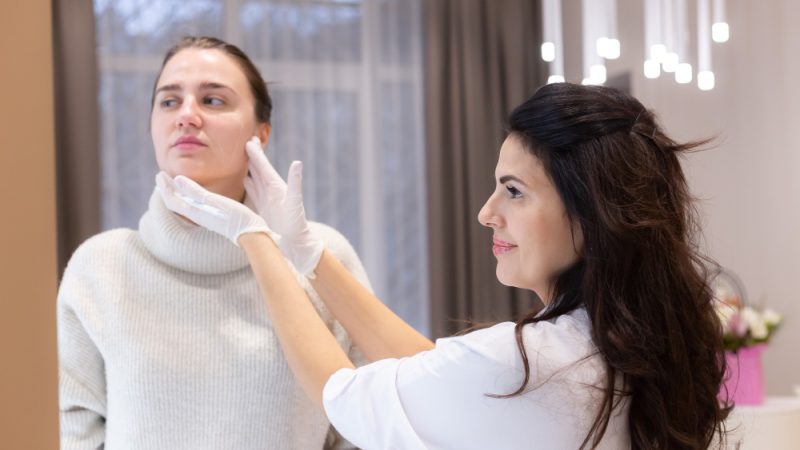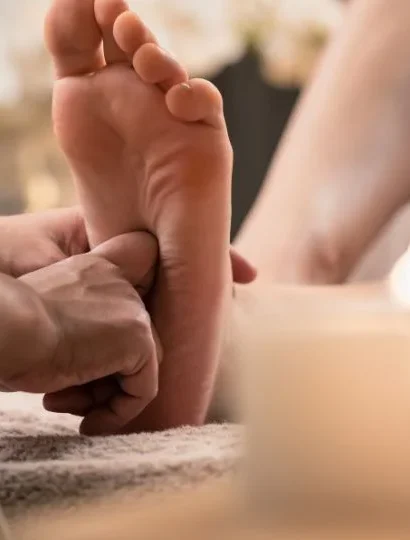Acne is frustrating, but the scars it leaves behind can be even more challenging to deal with. If you’re wondering how to reduce acne scars, you’re not alone. These stubborn marks can take months—or even years—to fade without the right treatments. But don’t worry! With the right skincare routine, home remedies, and professional treatments, you can significantly reduce acne scars and achieve clearer, smoother skin.
Understanding Acne Scars: Why Do They Happen?
Before treating acne scars, it’s important to understand why they form.
Types of Acne Scars
Atrophic Scars (Depressed Scars) – Caused by collagen loss, resulting in pitted scars like ice pick, boxcar, or rolling scars.
Hypertrophic Scars (Raised Scars) – Form when the skin produces too much collagen, leading to thick, raised scars.
Post-Inflammatory Hyperpigmentation (PIH) – Dark spots left behind after acne heals, not technically a scar but can take months to fade.
The best treatment depends on your type of scars, so let’s dive into the most effective ways to get rid of them.
Skincare Routine to Fade Acne Scars
A consistent skincare routine can help fade acne scars over time. Here’s what you need to include:
Gentle Cleansing
Use a sulfate-free, fragrance-free cleanser to prevent irritation. Harsh cleansers can slow down skin healing.
Exfoliation (1-2x per Week)
Exfoliation removes dead skin cells and promotes new skin growth. Choose:
✔ AHAs (Glycolic Acid, Lactic Acid) – Best for hyperpigmentation and mild scarring.
✔ BHAs (Salicylic Acid) – Ideal for oily, acne-prone skin to unclog pores and fade scars.
Brightening Serums
🔹 Vitamin C – A powerful antioxidant that fades dark spots.
🔹 Niacinamide – Reduces inflammation and improves skin texture.
🔹 Alpha Arbutin – Targets hyperpigmentation effectively.
Moisturizing
Hydrated skin heals faster! Use a lightweight, non-comedogenic moisturizer with ingredients like hyaluronic acid and ceramides.
Daily Sunscreen (SPF 30+)
UV exposure can worsen acne scars, making them darker and harder to fade. Apply a broad-spectrum sunscreen every morning—even indoors!
Natural Remedies to Reduce Acne Scars
If you prefer home remedies, try these natural ingredients to fade scars over time:
Aloe Vera
✔ Hydrates and soothes skin while promoting healing.
How to Use: Apply pure aloe vera gel to scars daily.
Honey
✔ Has antibacterial and healing properties that improve skin texture.
How to Use: Dab raw honey on scars, leave for 10-15 minutes, then rinse.
Lemon Juice (Use with Caution!)
✔ Brightens dark spots, but can be harsh.
How to Use: Mix with honey or aloe to reduce irritation.
Rosehip Oil
✔ Rich in vitamins and antioxidants that improve scar appearance.
How to Use: Massage a few drops onto scars every night.
Green Tea Extract
✔ Fights inflammation and reduces hyperpigmentation.
How to Use: Apply cooled green tea as a toner or mix with honey for a face mask.
Professional Treatments for Stubborn Acne Scars
For deep or stubborn scars, dermatologist-approved treatments can provide faster and more effective results.
Chemical Peels
✔ Uses acids like glycolic, salicylic, or trichloroacetic acid (TCA) to exfoliate the skin and fade scars.
Best for hyperpigmentation and shallow scars.
Microneedling
✔ Stimulates collagen production by creating tiny punctures in the skin.
Best for depressed acne scars.
Laser Therapy
✔ Targets deep scars and pigmentation by resurfacing the skin.
Best for severe scars and uneven skin tone.
Dermal Fillers
✔ Injected into atrophic scars to plump them up and even out skin texture.
Best for boxcar and rolling scars.
Retinoid Creams (Tretinoin, Adapalene, Retinol)
✔ Speeds up cell turnover and fades scars over time.
Best for mild to moderate acne scars.
Extra Tips to Prevent & Minimize Future Scars
Don’t Pick at Pimples – Picking leads to deeper scars!
Keep Skin Hydrated – Moisturized skin heals faster.
Change Pillowcases Weekly – Reduces bacteria that cause acne.
Eat Skin-Friendly Foods – Antioxidant-rich foods like berries, nuts, and leafy greens boost skin healing.
Manage Stress – Stress can worsen acne and slow down scar healing.
Conclusion
Reducing acne scars takes time, but with the right skincare routine, natural remedies, and professional treatments, you can achieve smoother, clearer skin. Whether you choose DIY solutions or dermatological procedures, consistency is key!
Ready to start your journey to a flawless complexion? Try these tips today and say goodbye to acne scars for good!
FAQs
How long does it take for acne scars to fade?
It depends on the scar type. Hyperpigmentation fades in 3-6 months, while deeper scars may take 6+ months to a year with treatments.
Are acne scars permanent?
Some deep scars are permanent, but most can be significantly reduced with the right treatments.
Can ice help reduce acne scars?
Ice reduces swelling and redness, but it won’t directly fade scars.
What’s the fastest way to fade acne scars?
For quick results, try chemical peels, microneedling, or laser therapy under a dermatologist’s care.
Do over-the-counter scar creams work?
Yes! Ingredients like retinol, vitamin C, and silicone gels help fade scars over time.
Also read: The Best Skincare for Acne Scars: Fade Marks & Reveal Clearer Skin





